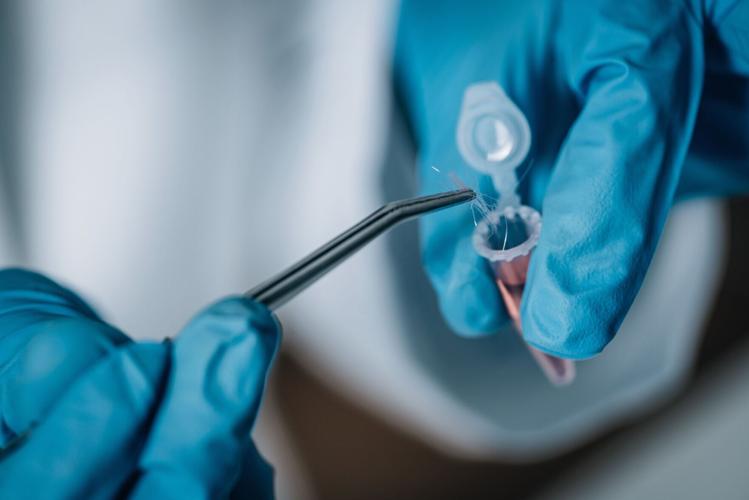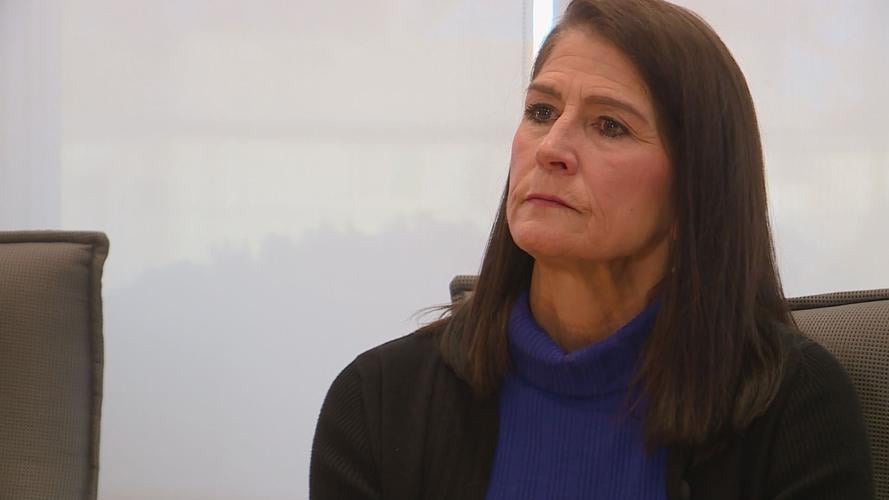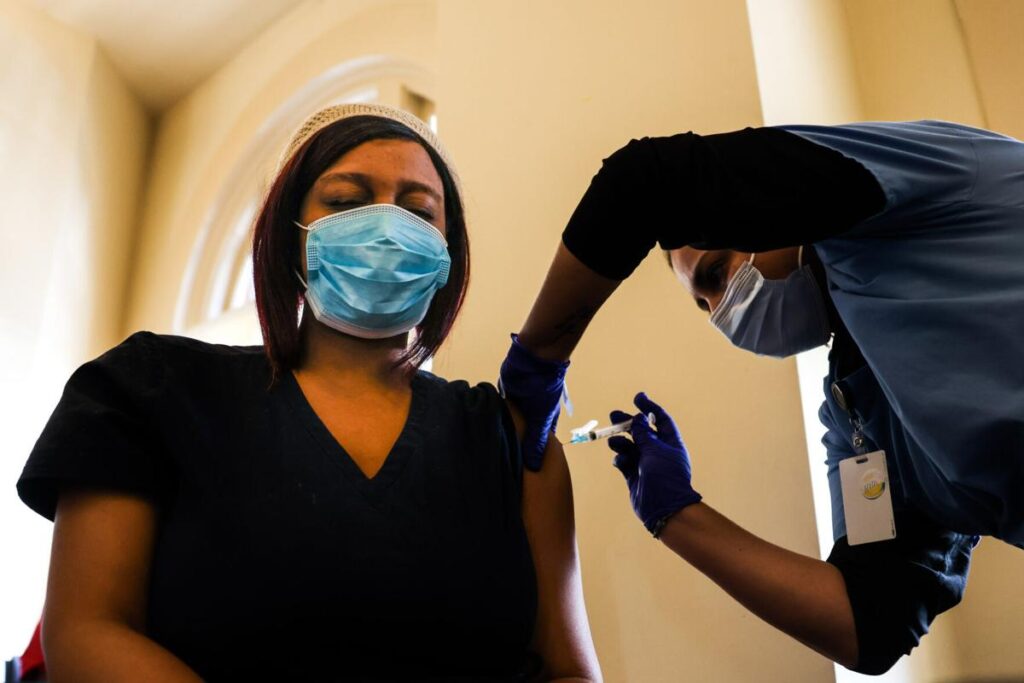Lawmakers pursue oversight of troubled Colorado Bureau of Investigation’s forensic lab
After more than a week of an emotional rollercoaster involving the Colorado Bureau of Investigation, the state House approved a revision to unit’s 2024-25 budget that will allow the agency to roll over $3 million into the next fiscal year.
The money will fund a backlog of test kits tied to more than 1,400 sexual assault cases.
The vote on Senate Bill 105 stood at 59 to 6.
The bill now heads back to the Senate, which is expected to approve the House’s changes. Once passed, it will head to Gov. Jared Polis for final approval.
So, how did the Colorado Bureau of Investigation get into this mess?
CBI officials said it was a “perfect storm.”
They said that “perfect storm” included three components — the attempt to “right-size” the division, understaffing that included a flood of employees going on long-term medical leave and other departures, and a former forensics scientist whose handling of more than 10,000 DNA cases is under a cloud of doubt, with every case that then had to be reviewed by the staff.
The Colorado Bureau of Investigation was on the verge of transforming its forensics lab in 2022. After years of dealing with capacity issues and with a growing fentanyl epidemic and escalation of gun crimes that put more caseloads on the lab, the CBI got permission from the legislature to increase its workforce dramatically.
The “right-sizing” of CBI would occur over three fiscal years, concluding on June 30, 2025. With an additional $15.3 million in spending, CBI would add 107 employees, doubling its existing workforce of 45. The forensics lab would add 27 employees, including six forensic scientists.
With fentanyl deaths on the rise, Colorado Bureau of Investigation seeks more funding and staff
The growth plan came after years of understaffing and a growing caseload, officials said. Between 2012 and 2022, requests for forensics services nearly doubled, but staffing was down about 7% at the same time.
The hiring plan was spread out over three years for a couple of reasons, but the major factor is how a forensic scientist comes online. It takes about two years of training to get someone up to speed, which requires current forensic scientists to spend about 50% of their time helping train the new employee.
That meant less available staff to do testing, officials said.
CBI Deputy Director Lance Allen, who oversees CBI’s forensic sciences, told Colorado Politics that, in July 2022, the turnaround for testing was 145 days.
Then the “perfect storm” hit.
Seven forensics scientists went on long-term family medical leave, and two more resigned.
The backlog grew by the end of 2022 to 180 days.
And it kept growing.
By May 2023, it had grown to 230 days.
Officials said the division began tackling the growing backlog by contracting out the kits and attempting to replenish the lab’s staffing to replace those who had left.
But every new hire meant someone wasn’t working full-time on the backlog, along with the growing cases from gun crimes and fentanyl and sexual assaults.
The Colorado Bureau of Investigation is a “by request” agency; its work is based on requests submitted by district attorneys and law enforcement departments.
CBI outsourced some 700 cases between May 2023 and May 2024. By then, the first batch of new hires was ready to come online.
Then came the Yvonne Woods scandal.
Woods is a former CBI forensics scientist who handled 10,786 cases in her 30-year career. She’s been charged with over 100 felony counts for allegedly mishandling many of those cases.
That meant the CBI had to shift gears to review every one of those cases immediately.
Allen said all the CBI’s forensic scientists have been removed from casework to research the Woods cases to ensure she wasn’t misrepresenting DNA profiles to make false comparisons.
Training for the new employees also went on hiatus. More people left.
The lab ground to nearly a halt on the backlog. Between November 2023 and January 2024, the lab’s DNA scientists did almost no DNA work. Throughout the rest of 2024, the capacity to do DNA testing dropped by 50%.
By the end of 2024, the timeline for turning around a DNA test had grown to more than 500 days.
“We acknowledge and agree that our current backlog is unacceptable,” Allen said. “We agree we have to do better and are working towards that.”
Allen added that CBI has a plan to aggressively tackle the backlog.
Officials said all 10,786 Woods cases have now been reviewed, which found 1,003 “anomalies.”
Joel Malecka, CBI’s director of government affairs, insisted that CBI found no evidence that Woods falsified DNA matches; Allen also said that they have no evidence that the reported results were incorrect.
A new lawsuit, citing time-stamped documentation, alleged that quality control within the Colorado Bureau of Investigation’s forensic lab was so lax that, in at least eight instances, it appeared the technical review of one scientist checking another’s work lasted just one minute. The issue raised questions in the legal community about deeper, more systemic problems concerning oversight and procedures at the lab than those caused by one alleged rogue analyst.
The Woods issue will be something CBI will continue to deal with for years to come, including the potential for public defenders asking to reopen cases and orders from judges or district attorneys tied to those cases.
So far, 14 cases have been retested, requests that can only come from district attorneys.
That’s where the money is needed.
The $3 million CBI had for retesting Woods cases wound up not being needed, so the logical decision, given how much the Woods case had put the lab behind, was to use that money to address the backlog.
It also meant a trip to the Joint Budget Committee during the panel’s trueing up of the 2024-25 budget to let them know what CBI wanted to do and, crucially, get permission to roll those dollars forward into 2025-26.
The JBC wanted to see a plan on how CBI would resolve the enormous backlog, particularly of sexual assault kits, now at 1,407. Over the past week, members of JBC told their fellow lawmakers they hadn’t seen one.
On Monday, CBI sent lawmakers a white paper outlining how to resolve the problem.
The report noted that DNA kits have a turnaround time of 510 days. Sex assault kits are at 529 days.
Currently, CBI has 16 scientists doing the tests, with 15 in training, which they were able to resume once the review of the Woods cases was completed. They contracted with an outside company to do the training to avoid taking the other scientists off the backlog.
Ten of the 15 trainees will be working on cases by the end of 2025, bringing the forensics lab to 26.
Allen said a fully trained DNA scientist can handle seven to 10 cases per month. With the current 16, that’s 120 to 160 cases per month.
Once the entire group of 15 is ready, the capacity will increase to 250 to 300 cases per month.
The work isn’t just for the backlog; CBI gets about 220 monthly requests for forensic testing.
The unit will still need outside help, and it plans to use the $3 million from its 2024-25 appropriation to contract an outside lab to help with the backlog. The unit will initially turn over about 1,000 cases to the outside lab.
“We need to get there faster,” Allen told Colorado Politics. “If we had to do this on our own, it would take years.”
The transparency issue also weighs heavily on CBI, according to officials. Both Allen and Malecka discussed what the division is doing to restore confidence in its work and bring victims justice.
The changes made in SB 105 by the House added a substantial requirement to CBI to keep lawmakers, the public and victims appraised of the progress.
The amendment to SB 105, offered by Rep. Jenny Willford, D-Northglenn, directs the department to provide a progress report to the JBC by Nov. 1, accelerate testing for the backlog of sexual assault kits through contracting with a third-party lab, and, notably, provide an email update every 30 days, beginning March 1 and continuing through June 30, 2026, to the legislature on the DNA backlog and sexual assault kit backlog.
CBI will also be required to set up a public dashboard so the public knows the status of the backlog.
That update would tell lawmakers the total number of cases with pending tests in each category, the current turnaround, the number of kits completed in the prior 30 days, how long it will take to reach a 90-day turnaround, updates on CBI staffing levels, and any issues with contract labs that could impact testing capacity or turnaround.
“We believe this (backlog) is just as unacceptable as the legislature has communicated,” Malecka said. “We want to make sure people understand this deeply matters to us, and we’re looking for every possible option so that victims can get justice.”
Allen said CBI welcomes the amendment and is comfortable providing that information.
“We are accountable for what we do. We are regularly asked for updates, and we provide them. We don’t shy away from it,” Allen said.
CBI has a dashboard that will go live on July 1 that will be exclusively devoted to tracking sexual assault tests. That begins with kits coming in on July 1.
That doesn’t apply to the backlog, which will get a separate dashboard, Allen said.
“We want to emphasize, all of us agree the current backlog is unacceptable,” Allen told Colorado Politics. “We’re working to bring it down … and have presented a very aggressive plan to address the backlog in the next 12 to 18 months and bring it down to acceptable levels.”
“We owe that to the state of Colorado,” he said, adding his unit appreciates the support from the Colorado General Assembly.
“We’re committed to delivering timely DNA and all forensic services.”













